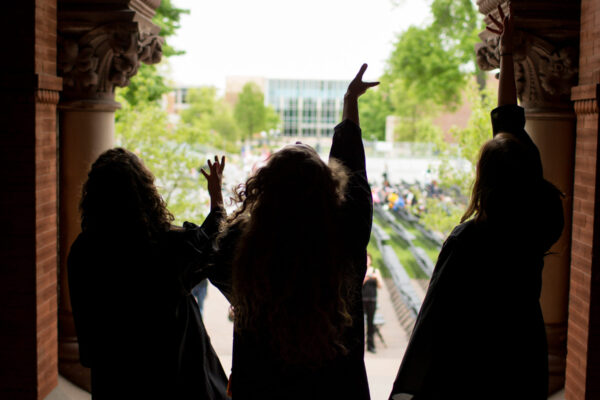What Will “College 2050” Look Like?
What will “College 2050” look like?
A panel at the closing plenary of ACE’s 97th Annual Meeting agreed that technology and innovation can play key roles in increasing the number of first-generation and low-income students who enroll and complete their degrees.
But that technology must be deployed in ways that engage students in collaborative, supportive and stimulating learning environments, they said.
One panelist, Cathy N. Davidson, a distinguished scholar at City University of New York, cited a piece on her blog about why when science fiction writer Samuel R. Delany teaches he requires everyone in a class to raise a hand when he asks a question.
Pulitzer Prize-winning journalist Kenneth J. Cooper moderated the panel. Other participants were Waded Cruzado, president of Montana State University, and Under Secretary of Education Ted Mitchell.
The final plenary also featured the presentation of the 2015 Reginald Wilson Diversity Leadership Award to University of Pennsylvania President Amy Gutmann. She could not be present for the ceremony, and the award was accepted on her behalf by John L. Jackson Jr., dean of Penn’s School of Social Policy & Practice.
Watch the full session, College 2050: Equity and Innovation in Higher Education below.
If you have any questions or comments about this blog post, please contact us.

